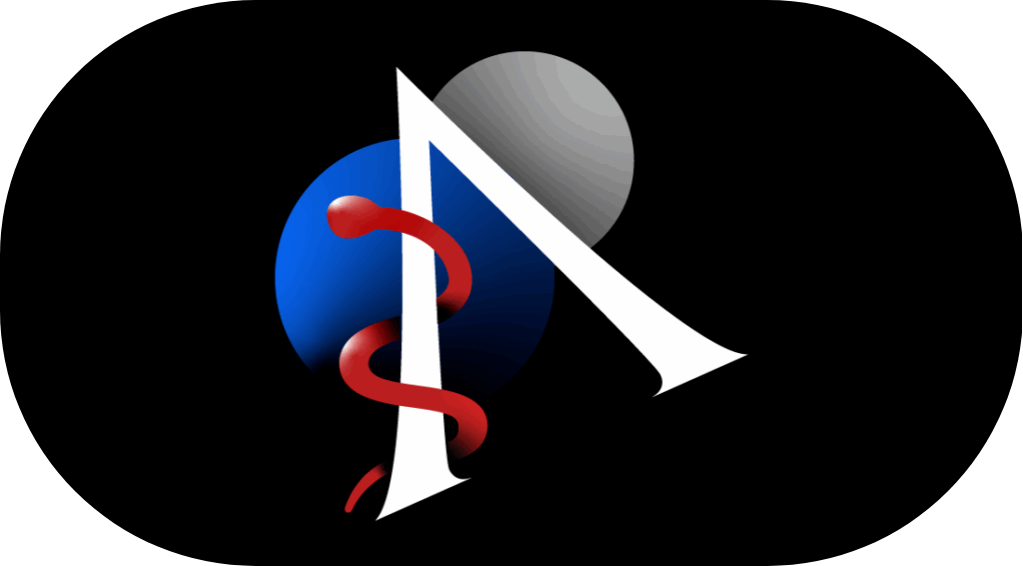This team is composed of the six members of the astronaut crew and the two back ups. The crew will perform an analogue space mission in all its components: training and thorough preparation; maintain and perform repairs of their base if needed; conduct scientific experiments and communicate with the ground team of the MCC as would a regular astronaut crew. The back ups stand ready to replace an undisposed astronauts prior to launch and are therefore trained in the same manner as the crew. The astronauts have been drafted from students all around the globe whose level of study ranges from bachelor to PhD.
Sebasthian Ogalde
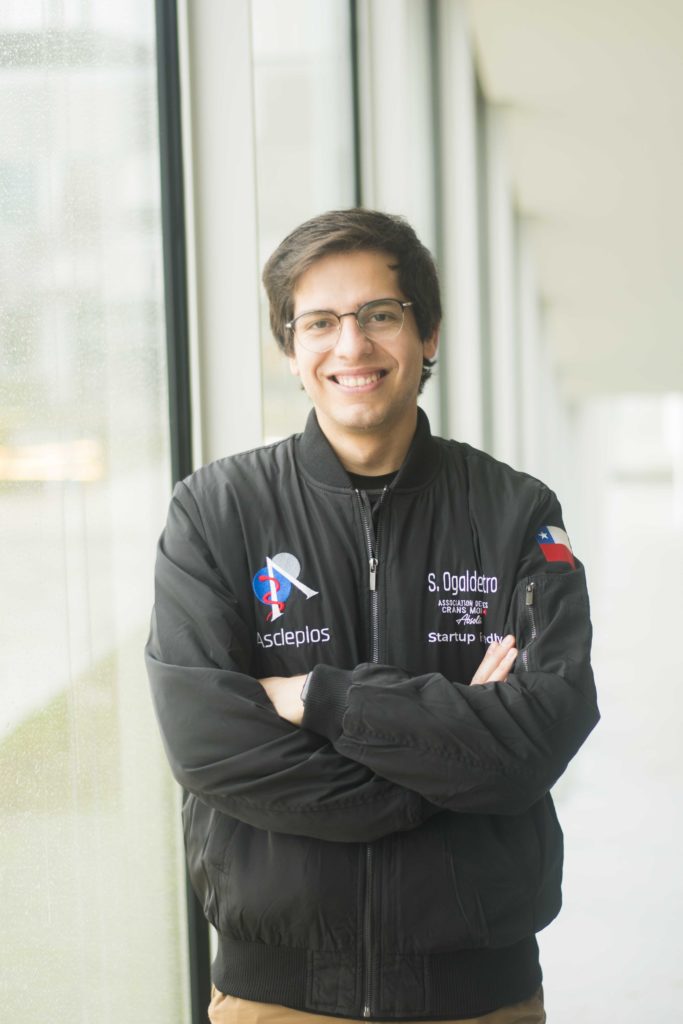
- 26
- Chile
- Bachelor in Astronomy, 4 semesters at Universidad Católica de Chile
- Electrical engineering with a minor in Electronics and Telecommunications, Universidad Católica de Chile with one year at St. Petersburg Polytechnic University
- Ongoing master in mechatronics Engineering, Politecnico di Torino
- Scuba diver license
- Preparing a private pilot license
We, as the new generation of scientists and engineers, are responsible for pushing further the limits of what we have already achieved in space exploration. Precisely this is the aim of Mission Asclepios. During the mission we will be preparing and performing scientific experiments, learning how to work as a crew and gaining experience on how to perform in a space-like environment. This allows us to prepare ourselves and to gain key competences for a future mission in space.
As analog astronauts we will not only be testing our minds and bodies with the conditions that we would encounter in space. Furthermore, we also hope to be a source of inspiration for younger generations of countries that haven’t yet dared to take the step to launch a space program.
Space always has seem too far. However with experiences like these, also you could get the chance to bridge over the distance and see that out there life is feasible, opening unthinkable possibilities. Space is right up there. It is now our turn to embrace it as the extension of our home planet.
Professional:
- Submarine Robot Electronics
- AOCS Testing & Integration Engineer, ESA’s Euclid Satellite Mission
Volunteer:
- Volunteer teacher at “Escuela Popular Paulo Freire”
Eléonore Poli
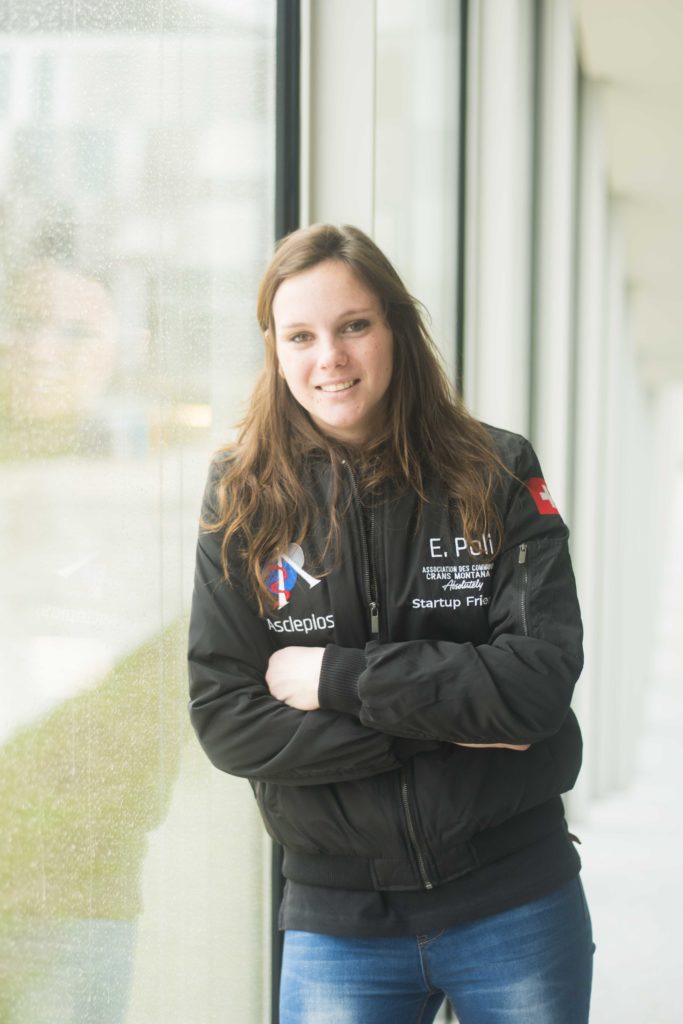
- 26
- Switzerland, Britain, France, Italy
- Baccalaureate (math and physics specialty)
- Incomplete Bachelor in material science and engineering, EPFL
- Bachelor in mechanical engineering, ZHAW
- MPhil by Research in Material Science & Metallurgy, University of Cambridge
- Ongoing PhD in Materials & Metallurgy, University of Cambridge
- Music certification
- Member of the Swiss Space Museum
- Ironman runner
I believe that analog missions such as the one we will carry are extremely important to prepare real missions in remote locations. They give insight in both practical and psychological issues, and allow improved conditions of mission, increasing safety, comfort and efficiency. They are also amazing opportunities for the candidates to push themselves and assess their performances in different environments.
Space exploration allows further understanding of what our universe is made of, how it expands and might be the key to the human race’s survival in the long term. The technology advancements that need to be done for such challenges can also be used on our own existing world to improve life. The research for other worlds and how to survive on them, could be a way to save our own: by learning how to be sustainable and survive with the minimum.
Professional:
- Teaching assistant for IB students
- Internship at Pilatus Aircraft Ltd
- Teacher for robotics at Bricks4kidz
Volunteer:
- Payload design, EPFL Rocket team (project Matterhorn III)
- Head of space domain, Aeropoly
Willem Suter
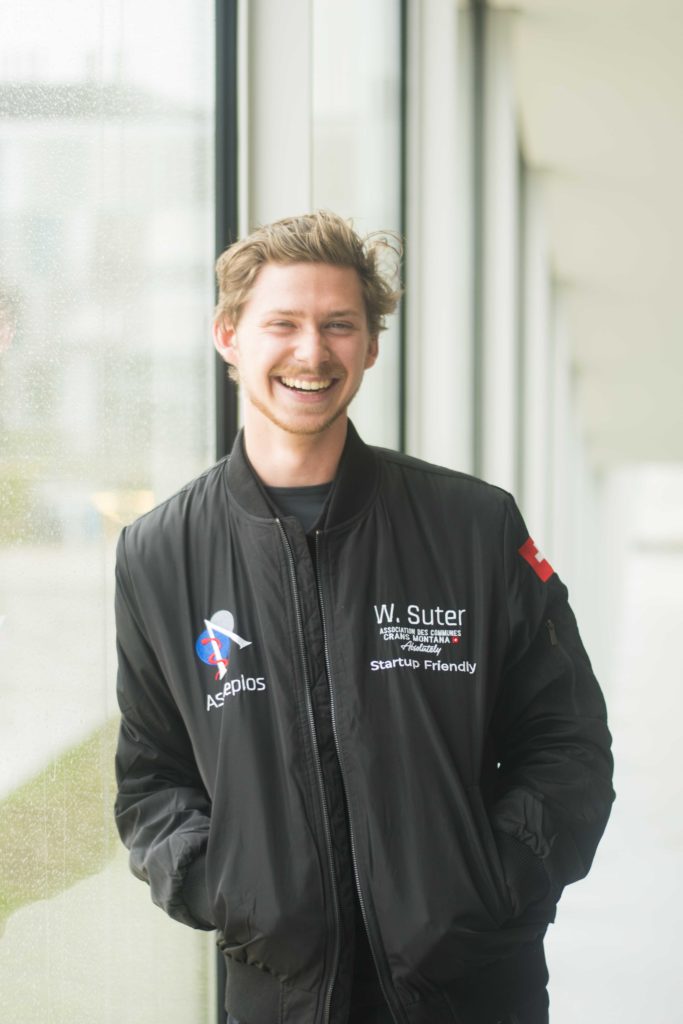
- 24
- Switzerland, Belgium, USA
- Bachelor in mechanical engineering, EPFL
- Erasmus exchange (3rd year of bachelor), TU Delft
- Ongoing Master in Automation and Control with Minor in Space Technologies, EPFL
- PADI divemaster
- Mountaineering
- Paragliding
Landing on the Moon, repairing the ISS or training for micro-gravity, may sound lonely, frightening and even complicated at first… To me, however, these tasks inspire teamwork, exhilaration and fascination. I don’t know of a better environment than space to push beyond our expectations and fears. Being an astronaut is what I aspire to become and yet I don’t want to work a day in my life – not because I’m lazy – but because I genuinely believe that working in a field I’m passionate about turns work into play. It is the only profession I know of that finds a perfect balance between intellectual stimulation, social bonding and physical endurance. Together, these factors form my vision of the perfect job. For all of us on board, Asclepios is the beginning of an adventure. The first step alongside a sturdy astronaut crew, clever engineers and bright researchers with a common goal: to learn and inspire. It is our generation that will man the Moon bases of the future! As such, it is up to us to get a head start, push beyond the boundaries of knowledge and help today’s astronauts better prepare for their return to Earth’s satellite, to hopefully one day join them.
Professional:
- Chemistry Teaching Assistant
- Internship in R&D Department, Atlas Copco
- Infantry Crewman for Armored Vehicles, Swiss Army
- Project Manager and Consultant, SORA Consulting GmbH
- Intern at Clearspace SA working on Relative Navigation Subsystem
Volunteer:
- President of the Save-it Haiti NGO
Manuela Raimbault
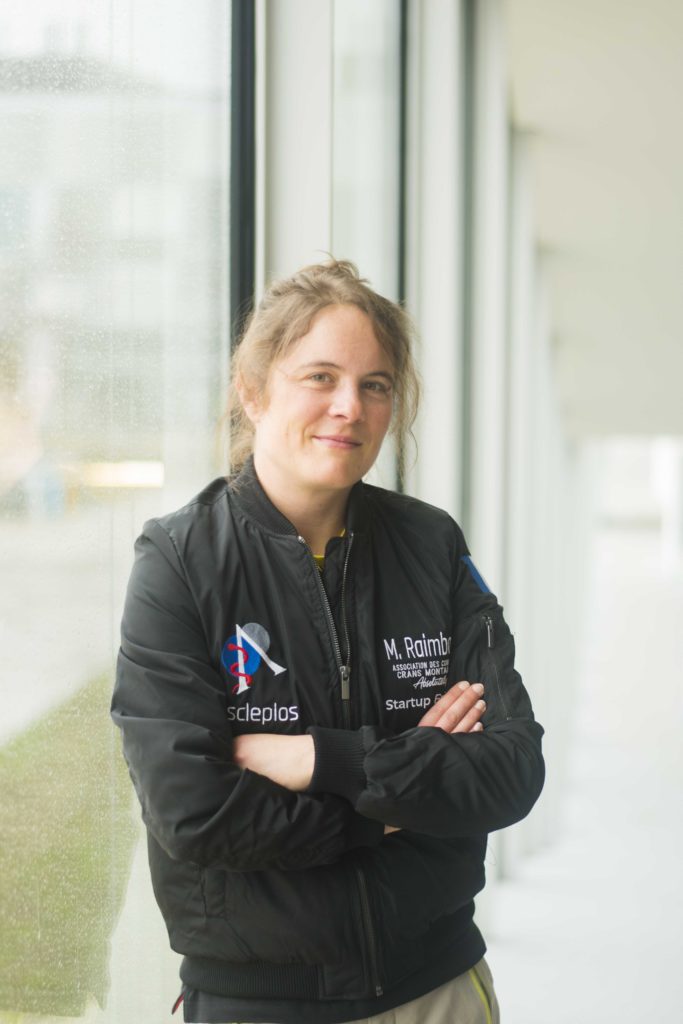
- 32
- France
- Baccalaureate (maths, physics and chemistry specialty)
- Classes Préparatoires MPSI, MP
- General engineering diploma, Centrale Nantes
- Master degree, Observatoire de Paris
- Ongoing PhD in astrophysics, University of Geneva
- Mountain guiding, paraglidding
- Building a Planeterrella, a 250 mm télescope
- Art (woodworking, DIY, violon and piano)
Asclepios, a space analogue mission. Wouah! The concept immediately convinced and captivated me. The opportunity to experience what an astronaut recruitment is like, to take part to amazing science during the mission, and icing on the cake meet an astronaut and an explorer. And to do so, follow various training, discover new fields of science, work as a team, experience new extreme environments. Research and adventure as I conceive it: merging different fields of interest, being part of the experiment, totally being involved as a researcher and as a person.
Professional:
- Many public conferences
- Three internships as part of the engineering cursus: Supernovæ classification thanks to spectral indicators, Antiprotons flux and Interferometry with Ohana project at the Mauna Kea.
Volunteer:
- “Nantes Eau Brésil”, humanitarian work aiming at making a small village independant regarding water problems.
- Participation to « Ma thèse en 180 secondes »
Sophie Lismore
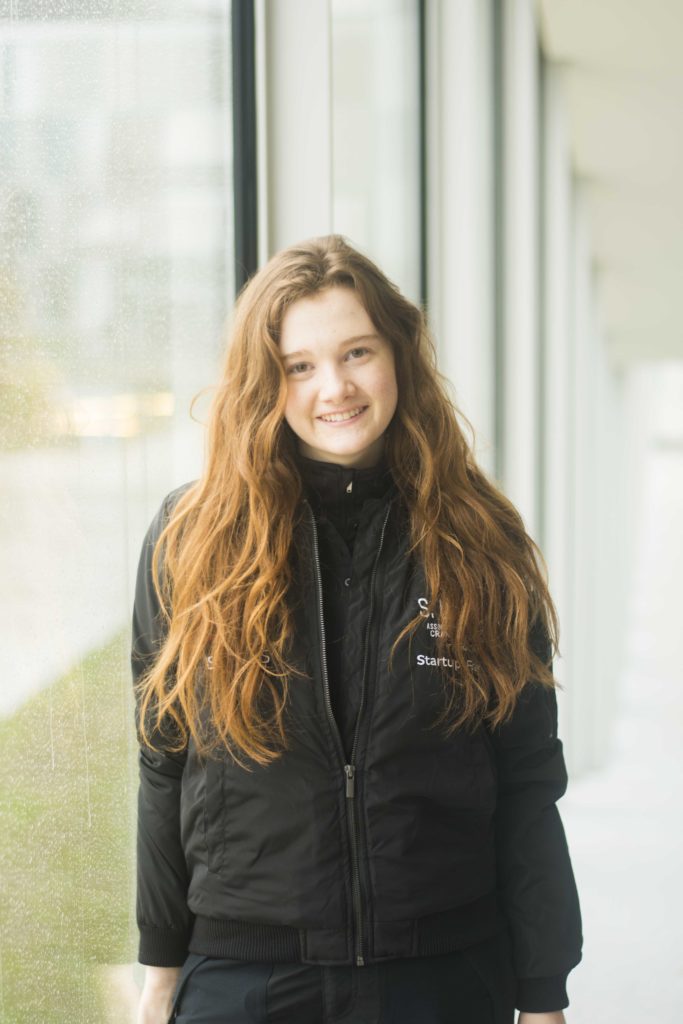
- 21
- Switzerland, Britain, Ireland
- Bilingual baccalaureate (math and physics specialty)
- Ongoing Bachelor in physics, EPFL
- Competitive skiing (Valais cantonale team 2012-2014)
What is our future? This is a pressing question that humankind must ask itself every day. Individually what can we do to better our lives, globally what must we do to protect our world, and what can we still achieve? This is part of what the Asclépios mission seeks to do, to push our knowledge forwards. Indeed, we hope to fill in some gaps about space exploration and to show that humans can live beyond the Earth. As well as creating a chance to focus creativity into something useful. I believe curiosity is one of humankind’s greatest qualities. The way of seeing the universe as puzzle begging to be solved, to explore and understand as much as possible will set us up right for tomorrow. The way that our future has always been insured is through the furthering of our understanding. We must prepare for what is still to come on this planet or another and rejoice that there is a whole universe to explore. |
Professional:
- Office work
Volunteer:
- Operations Contact Officer for the Asclepios project
Julien Corsin
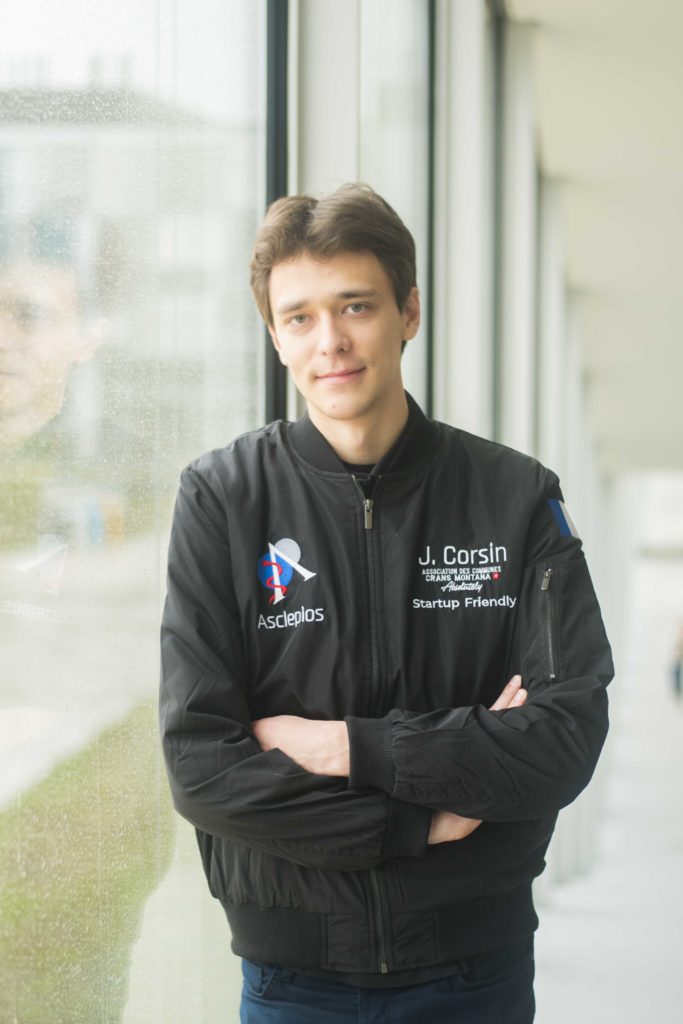
- 21
- France
- Scientific Baccalaureate, (Mathematics specialty)
- Bachelor’s degree in communication systems, EPFL
- Ongoing master degree in communication systems with Space Technologies Minor , EPFL
- Software engineering in : C, Java, JavaCard, Python
- Cryptographic protocols implementation
Let us once more answer this ancient, yet familiar desire
By again being the odd fish to spring out of water.
Let us quench our thirst of knowledge
At the universe’s very edge,
And fill the hole of our loneliness
With an infinity of planets.
Let us make the most daring step in Mankind’s journey
For it may be the last one there needs to be.
Let us put an end to our petty wars
And instead unite to soar through the stars.
Professional:
- Software developer at EPFL’s startup Global ID
Volunteer:
- Base Design engineer on the Asclepios project
- Qiskit Camp Europe 2019
Aubin Antonsanti
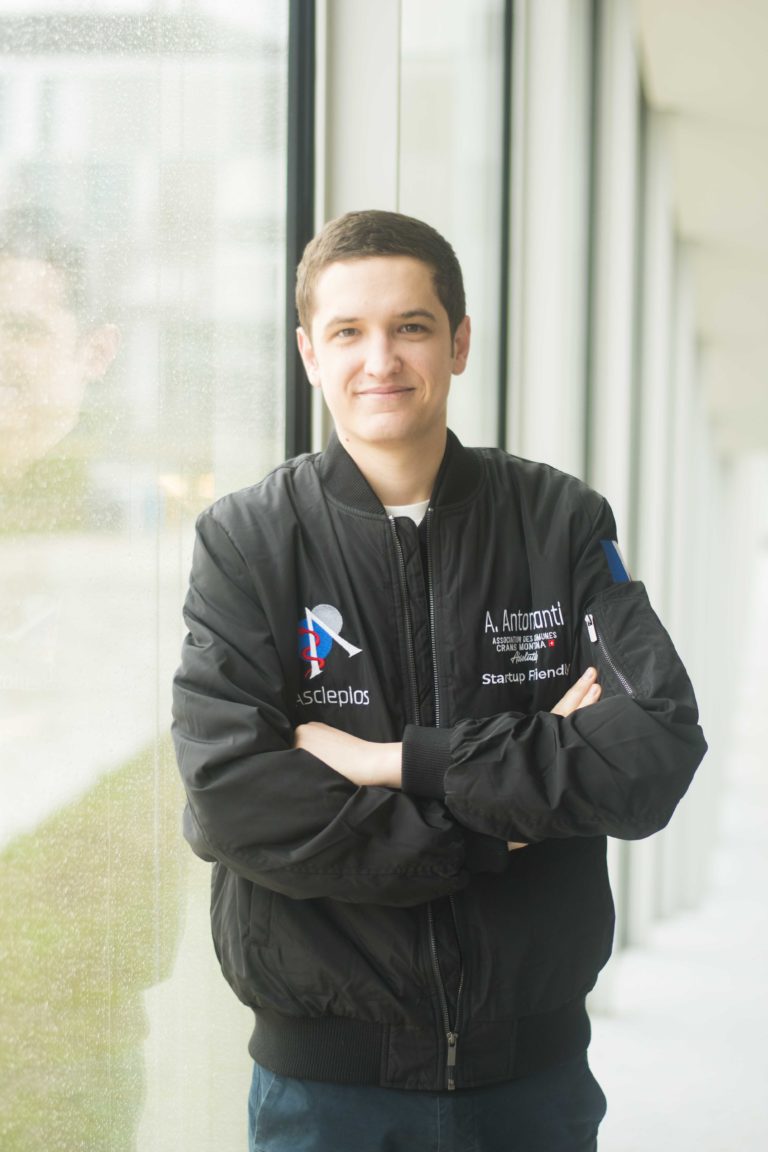
- 24
- France
- Master of Nuclear Engineering, INSTN – CEA
- Master of Electrical Engineering, INSA Lyon
- Baccalaureate with mathematical specialization
- Industrial robotics competition, FANUCS olympics
- Electronically-Assisted Astronomy (EAA) observations
It is often said that we look at the past when we look at the stars. Looking back at Earth from space allows us to see our present and to foresee our future.
As we are travelling all together on this rocky vessel, Space is both our past, our present and our future.
This is why I believe that space exploration is one of the key to a better understanding of our universe, our solar system, Earth and ourselves.
With the reborn interest of sending woman and man on the moon again, the Asclepios mission takes place in a context in which it is likely to provide results that will be valuable in order to create reliable moon missions.
Professional:
- Ongoing : PhD Candidate “Particle flux dependence of displacement damage effects in inmage sensors”, ISAE-SUPAERO, CNES, NASA GSFC
- Internship at CEA Cadarache in the Laboratory of Physical Studies
- Internship at REEL
Marcellin Feasson
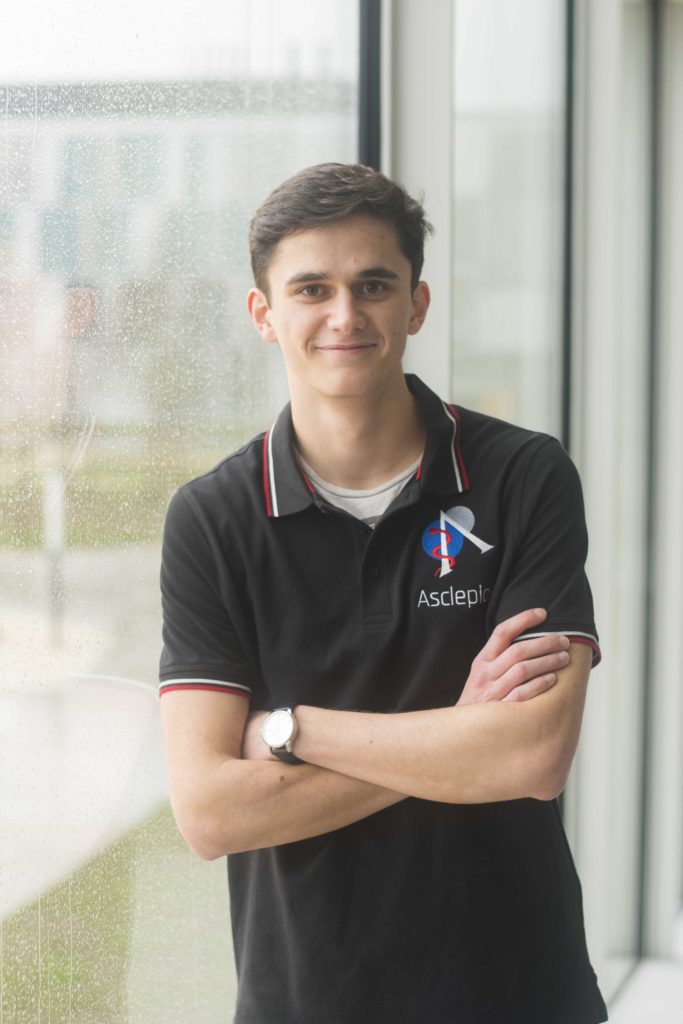
- 23
- France, Switzerland
- Currently completing a Bachelor’s in Engineering Sciences in France
- Bachelor’s degree in Physics from EPFL
- French Preparatory Classes in Mathematics, Physics and Engineering Sciences
- Glider/Sailplane pilot student
- Licensed Scuba Diver
- Climber and triathlete
- Violin and guitar player
Look again at that dot. That’s here. That’s home. That’s us. On it, everyone you love, everyone you know, everyone you ever heard of, every human being who ever was, lived out their lives. The aggregate of our joy and suffering, thousands of confident religions, ideologies, and economic doctrines, every hunter and forager, every hero and coward, every creator and destroyer of civilization, every king and peasant, every young couple in love, every mother and father, hopeful child, inventor and explorer, every teacher of morals, every corrupt politician, every “superstar,” every “supreme leader,” every saint and sinner in the history of our species lived there–on a mote of dust suspended in a sunbeam.
-Carl Sagan
Professional:
- Student assistant at EPFL Alumni,
- Stretcher bearer
- Extruder
Volunteer:
- Co-Founder and former co-Project Leader of Asclepios,
- Member of MIT AeroAstro team for NASA Moon to Mars Ice and Prospecting Challenge competition project
Christian Cardinaux
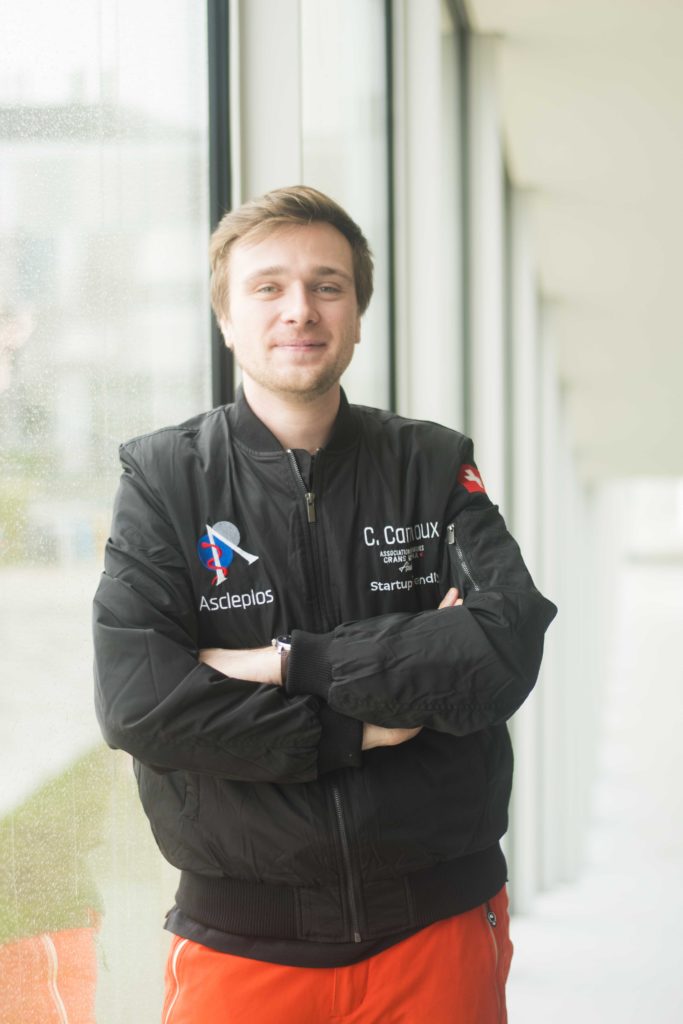
- 26
- Switzerland
- Baccalaureat (math and physics specialty)
- Mechanics and electronics class, CPNV
- Mechanical engineering Bachelor, HEIG-VD
- Theatrical Improvisation
- Scuba Diving Open Water SSI
- Rocket Recovery Operations Leader at the Spaceport America Cup with EPFL Rocket Team
For me this amazing journey that is Space exploration embodies what humanity has best to offer. Sending humans to these hostile and yet beautiful landscapes brings out the best in each of us. It is a demanding task that requires collaboration, perseverance, intelligence, but most of all, passion. The reward is at the magnitude of the difficulty. Without even talking about the advancement in science, technology and medicine, the biggest remuneration is the joy and the feeling of fulfillment that brings a successful mission.
I see the mission Asclepios as a great opportunity for a team sharing the same passion to learn how to conduct a space mission from the conception to the analysis of the results. This is an amazing sandbox for students to learn and to prepare them for the next wave of space exploration. God speed, Asclepios!
Professional:
- Internship at Launcher innovation team, RUAG Space
- Co-Founder of a space engineering office, The Countdown Company
- Improvisation Teacher
- Development engineer working on ESA Melissa’s Photobioreactors and Slip Rings at RUAG Space, Nyon
Volunteer:
- Airbrake system teamleader, EPFL Rocket team
- Crewman Jumping arena team, International Jumping Competition (CHI Genève)
